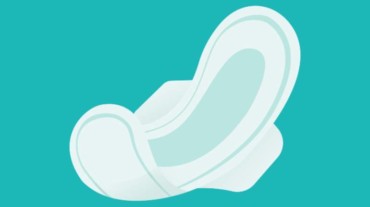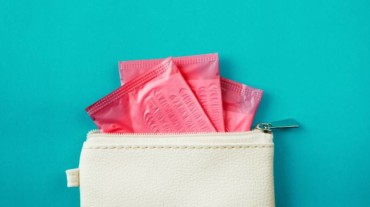Chat with ![]()

Chat with ![]()


Ever heard the statement, “Don’t put anything on your body that you wouldn’t eat if you had to”? The truth is that exposing your body to chemicals through your skin may be worse than eating them. Hence, it’s time to become conscious of all the toxic chemical gunk that you might be exposing your body to through your chosen feminine hygiene products.
The reason is that the enzymes in your saliva and stomach help break down and flush chemicals from your body. Unlike this, when they’re absorbed straight into your bloodstream, they go directly to your delicate organs. Once in your body, they can accumulate since you typically lack the necessary enzymes to break them down.
In fact, tampon and sanitary pad manufacturers aren’t required to disclose ingredients since feminine hygiene products are considered “medical purpose devices”.
So, the next time you go to buy your next batch of sanitary pads, tampons, or intimate washes, please make sure to check the ingredients. You might find some of these toxic chemicals sneakily put in them:
1. Chlorine bleach for that ‘clean’ look in sanitary pads and tampons
Have you noticed the ultra-clean, white look that a fresh sanitary from a conventional brand has? Well, it turns out it doesn’t actually embody purity. It contains chlorine bleach which can create toxic dioxin and other disinfection by-products (DBPs) such as trihalomethane.
According to a report by EPA, it was found that dioxin collects in fatty tissues and poses a serious public health threat that has no ‘safe’ level of exposure. It further shares that the toxic bleach might lead to serious health complications such as abnormal tissue growth in the abdomen and reproductive organs, abnormal cell growth throughout the body, immune system suppression and hormonal and endocrine system disruption. Well, that shall certainly make us question our next ‘clean’ purchase.
2. You might be absorbing GMO through your tampons
Wait, what is GMO and how does it get into the feminine hygiene products? Well, GMO stands for genetically modified organisms. Conventional tampons are created using ingredients that are exposed to pesticides and fertilizers. Yes, you heard that right. When specific cotton plants are exposed to these elements, it makes the plant itself detrimental to our health.

According to the USDA, 94% of all U.S. cotton is genetically engineered. This exposes us to a dangerous army of genetically-modified organisms a.k.a GMO.

What are the health risks they bring along? Even though ingesting GMO food is awful, using a GMO tampon several times every month is worse. The reason lies in the fact that the vaginal wall is highly permeable. This gives an open pass to toxins like pesticide residue and GMO proteins direct access into the bloodstream.
3. Look out for Sodium Lauryl Sulfate in intimate washes
We’re all familiar with the frothy lather that conventional intimate washes create. Well, it might seem satisfying but it sneaks in toxicity into your body instead of the promise of keeping it ‘clean’. Sodium Lauryl Sulfate(SLS) is a harsh surfactant that acts as a foaming agent.
Usually found in shampoos, body washes, intimate washes, and facial cleansers, SLS has been shown to irritate the skin, especially to your sensitive lady parts. What can you do to avoid it? Since surfactants are common agents used in washes available in the market, you can choose feminine washes with natural surfactants. They are often derived from coconut oil, sugar, or vegetables. Well, honestly, good old water shall work the best.
4. All that soap isn’t what your hoo-ha needs
A lot of feminine washes contain soap instead of synthetic surfactants. Even though soap is essential to keep your body clean, it’s bad for your vagina. The reason being that your intimate areas have a low acidic pH, whereas soap has an alkaline pH.

Using soap disrupts the natural balance of your intimate areas leading to a negative impact on the vaginal flora and a greater risk of infection. Also, soap can cause the mucosal lining in intimate areas to become dry which will cause you discomfort.
5. Your vagina can’t be serenaded with synthetic fragrances
The whiff of ‘pleasant’ fragrance that a fresh sanitary emits isn’t what your vagina needs, no matter what advertisements say. Ever noticed how manufacturers simply state that their products are formulated with ‘fragrance’ but don’t specify the exact chemicals they contain?

Well, this secret fragrance is a chemical soup that is laced with artificial colors, polyester, adhesives, polyethylene (PET), polypropylene, and propylene glycol (PEG). It might seem pleasant and harmless at first but it is actually linked to hormonal disruption, cancer, birth defects, dryness, and infertility. So, ladies, all that smells good might not actually be divine.
6. We’re all familiar with the bad old parabens
Parabens are synthetic compounds used as preservatives in pharmaceutical and cosmetic products. Some of the ‘secret’ names used when adding them to the ingredients list are methylparaben, ethylparaben, propylparaben, butylparaben, and isobutylparaben.

The important question is that, is it really preserving our intimate health or disrupting it?
One of the reports by Campaign for Safe Cosmetics states that “Of greatest concern is that parabens are known to disrupt hormone function, an effect that is linked to increased risk of breast cancer and reproductive toxicity.” This sounds like a red alert, ladies! Although parabens are considered safe at low concentrations, it is likely to cause allergic reactions on sensitive skin.
Well, you must shun this toxic gunk completely out of your body since you never know how the skin of your female genital area might react to parabens.
Now that you have educated yourself on the toxic chemicals that might lie in your ‘clean’ feminine hygiene products, you must consider switching to natural alternatives. After all, these hygiene products should feel ‘clean’ both inside and out.
Get Latest Updates on Intimate Health, Feminine Hygiene, Menstruation, Sexual Health